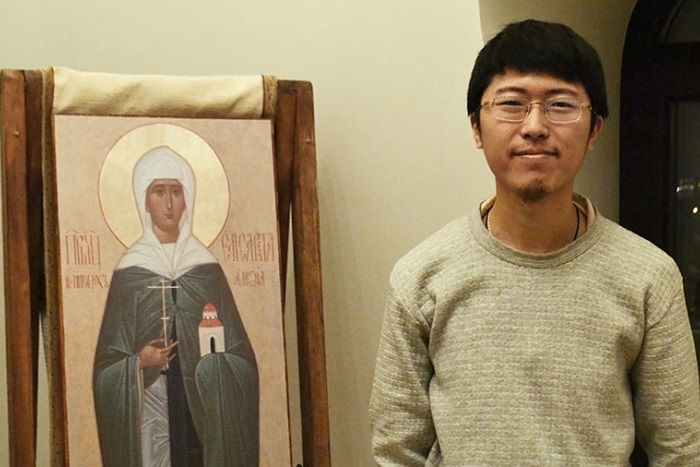
Most of us think of China as the land of the Great Wall, Confucius, Communism, gunpowder, sky lanterns, dragons, hieroglyphs, cheap goods, rice, and tea. Believers may also recall Saint John of Shanghai and San Francisco who served the Chinese nation among others. We have to admit that China remains a little known country for us, let alone the history of the Orthodox Church in that country.
Our meeting with Martin Go who came to St Elisabeth Convent as a pilgrim allowed us to learn more about China. This young man became Orthodox in Europe where he now studies. Martin is his baptismal name, his parents still call him Zi Ran Go. His father is a Communist but he has accepted his son’s choice. Martin plans to return to China in the future.
The history of the Orthodox Church in China spans more than three centuries. The first Orthodox in this land were the Albazinians. They were descendants of Russian Cossacks from Albazin captured in battle on the Amur River in 1685. They were brought to Beijing to the Kangxi Emperor. He was impressed by their courage, settled them in the city, and made them part of his guard. Orthodoxy wasn’t spreading to other regions of China until the second half of the 19th century.
Treaties of Tianjin, signed in 1861, gave foreigners better conditions for operations with and within China. They also granted foreign missionaries liberty to preach their religions. The Russian Church Mission established several missionary bases in Chinese provinces. Its members translated worship books into Chinese and wrote research papers on sinology.
There was the Boxer Rebellion in China in 1889-1900, which sought to destroy all Western and Christian influences. Chinese Christians were subjected to persecution and murders. 222 Chinese Martyrs were canonised by the Russian Orthodox Church in 1902.
There were 6,000 Chinese Christians and thirty-two Orthodox churches in China by 1902. Hundreds of thousands of Orthodox refugees fled to China after the Russian Revolution of 1917. The number of churches peaked at 103 in 1949.
Things changed after the Communist revolution in China in 1949: the Russians left the country, and 10,000 Chinese nationals who were Orthodox remained. The Orthodox Church in China received autonomy in 1956. The Cultural Revolution of 1966-1976 was a serious ordeal for the Church. The believers were persecuted. Churches were destroyed. The situation slightly improved in the 1980s following reforms by the Chinese government but even today the Chinese Autonomous Orthodox Church lacks official status. Chinese Orthodox Christians are deprived of their right to practise their religion.
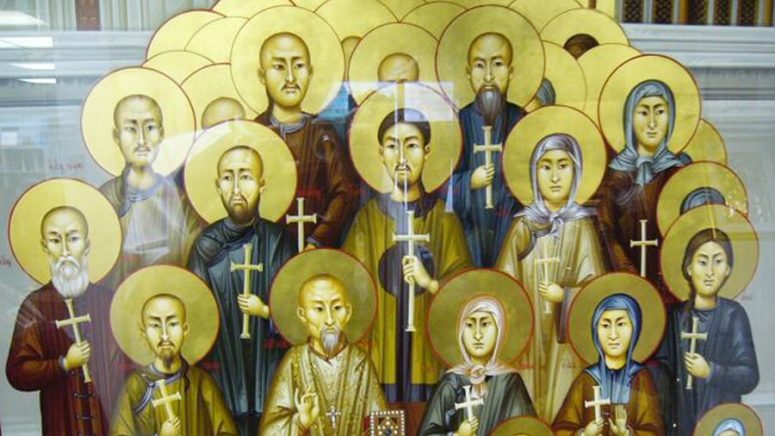
Martin, how many Orthodox Christians are there in China nowadays?
There are about 15 thousand Chinese who belong to the Orthodox Church. However, there are many Russians and Ukrainians who live in China, so the number of Orthodox Christians is actually higher.
What is the ethnic background of the priests who serve in your churches?
There are Chinese priests in South Mongolia and Harbin. There are priests from Russia in Beijing and in my home city of Dalian (in the southernmost part of Liaoning Province). Father Andrey Bukhteyev serves in our city. We have Liturgies every Sunday. There are functioning Orthodox churches in my city, in Shanghai, in Harbin, in Beijing, and in the South Mongolia and Xinjiang provinces.
Currently, there are no bishops in China, just several priests.
I’ve read about the 222 Chinese martyrs. What are the other saints that are especially honoured by the Orthodox in China?
We honour Holy Apostle Thomas (he allegedly came to China after preaching in India), St Nicholas of Japan, St John of Shanghai, St Innocent of Irkutsk (he was one of the first leaders of the Russian Orthodox Mission in China, I even went on a pilgrimage to Irkutsk to venerate his relics), and St Gurias of Crimea who translated the New Testament, the Psalter, and other liturgical books into Chinese.
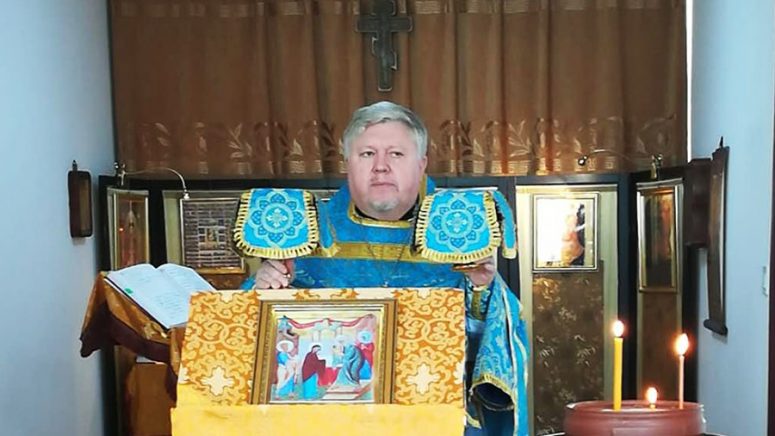
We pay deep respect to Metropolitan Innocent (Figurovsky) of Beijing and China who was in charge of the Mission in the early 20th century. It was him who met the bodies of Holy New Martyr Grand Princess Elisabeth and Alapayevsk Martyrs in Beijing in 1920.
All those people were monks. Would you like to become a monk eventually?
I like both ways: married priesthood and monasticism. I’m 25, and it depends on whether I have a girlfriend or not.
When I become a priest, I’d like to go back to my homeland. There are Orthodox in China but we have few clergy. The main difficulty lies in complicated relationships with the authorities. One has to receive government approval to become a priest in China.
How and when did you accept Christ?
I was looking for the truth and the meaning of life. I developed a keen interest in all religions while still in China. I spent almost a year in the USA studying philosophy. Initially, I was baptised as a Catholic. Now I’m Orthodox. I figured out the difference between the Catholic and the Orthodox faiths when I studied theology in Paris. I read several works by Vladimir Lossky, which made the differences between the Catholic and the Orthodox clear to me. For example, the issues of filioque and the papacy. I realised that the Orthodox had preserved Christian traditions better. I became a member of the Orthodox Church on Pentecost in 2016 by the Sacrament of Chrismation performed by the Provost of the Russian Theological Seminary in Paris Hieromonk Alexander (Sinyakov).
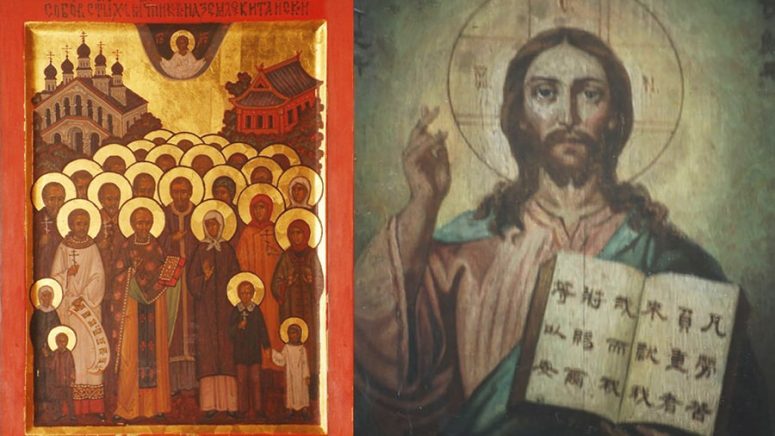
You study in Europe now, don’t you? Do you see any difference between Asians and Europeans?
Yes, I see that cultures are different. Traditions and opinions are important but I understand that all people have something in common. Every person has a soul, and every culture is built on ethics and spirituality. All nations can become perfect through Christ.
Are the values preached by Christianity connatural to the Chinese people?
There are many Christians in China but most of them are Evangelicals and Catholics. Buddhists also believe in the existence of the soul but the majority of people live without religion because ours is a Communist country.
Christianity is in keeping with the Chinese traditional values like meekness, respect of others, justice. However, Christianity provides a radically different view of the human life and this world. It makes life meaningful and teaches us that there is the spiritual world and that there is life after death. Christianity is better than Buddhism.
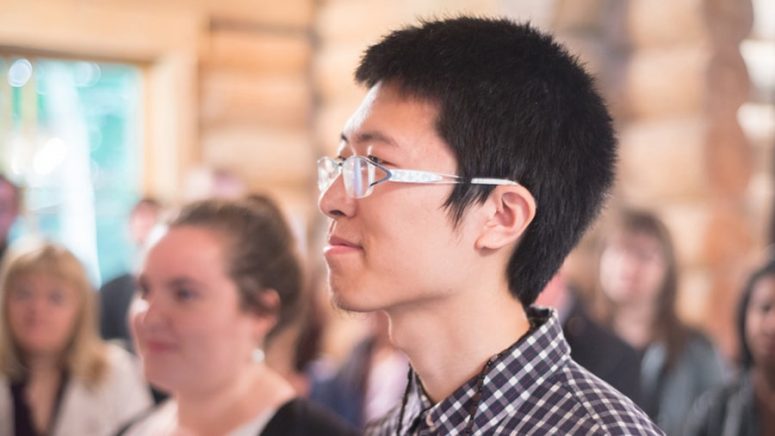
Where did you learn about our Convent?
St Elisabeth Convent is very famous. There was an Orthodox exhibition in Bern, Switzerland, where I got to know Sister Helena from your Convent. I was impressed by the goods made in your workshops and the ministry of your sisters, so I decided to come here and see everything with my own eyes.
I’ve been doing my best to attend as many services as possible while in Minsk. I was really happy to celebrate the great holiday of the Nativity of Christ in your Convent.
I was genuinely impressed by Father Andrew Lemeshonok. I saw him hearing confessions of lots and lots of people till 2 o’clock in the morning. I haven’t met many priests like him.
Martin, what do you do now?
I’ve finished my studies in France, and now I study theology in a Swiss university in Freiburg. It was Father Dionysius Pozdniaev who advised me to continue my studies in Europe. He is a Russian priest who serves in Hong Kong. I met him in Paris, and he told me that there are schools of theology in Russia only in theological academies, while it can be possible for me to receive a government-certified diploma in theology in Germany or Switzerland. When I do, I’d like to enter Moscow Theological Academy.
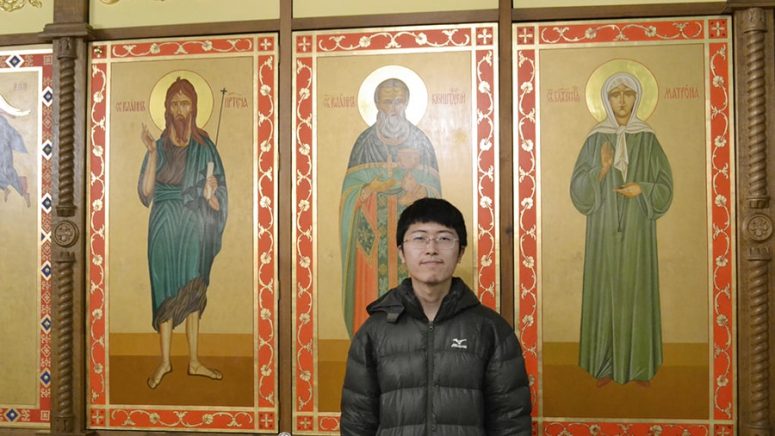
You’ve lived in many countries. Which language do you pray in?
I read the Bible in various languages but I pray in Chinese and Church Slavonic. Church Slavonic is a difficult language but it possesses spiritual power. I like praying in Church Slavonic. I can practise Russian only with parishioners at church.
There were services in Church Slavonic, Russian, French, and Romanian in my previous parish in Paris. Currently, I go to church in Bern. The main liturgical languages in that parish are Church Slavonic and Russian, sometimes also German.
There are quite a few Orthodox churches in Switzerland. For instance, there are Orthodox churches, which belong to other Local Orthodox Churches, in Freiburg but I want to pray in a church which belongs to the Russian Orthodox Church, so I have to go to Bern.
Why is it important for you to pray in a Russian church?
It’s simple: I became Orthodox in the Russian Seminary in Paris. The Orthodox Church in China also appeared thanks to the Russians.

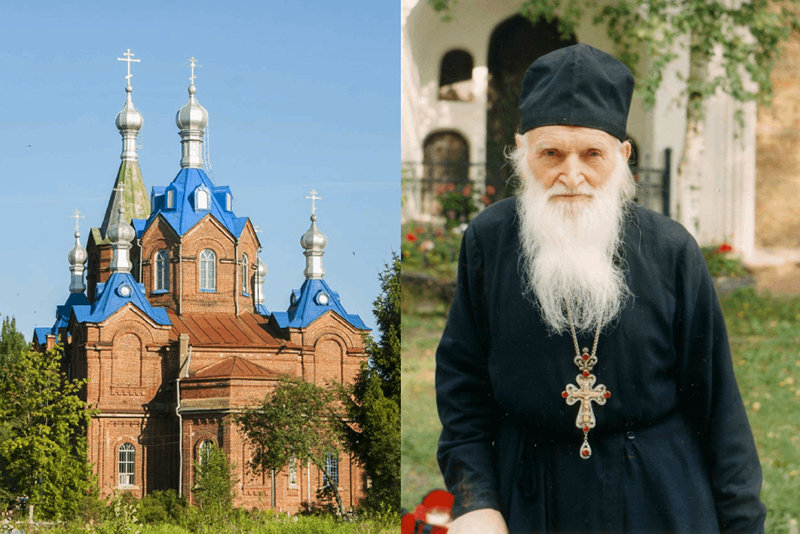
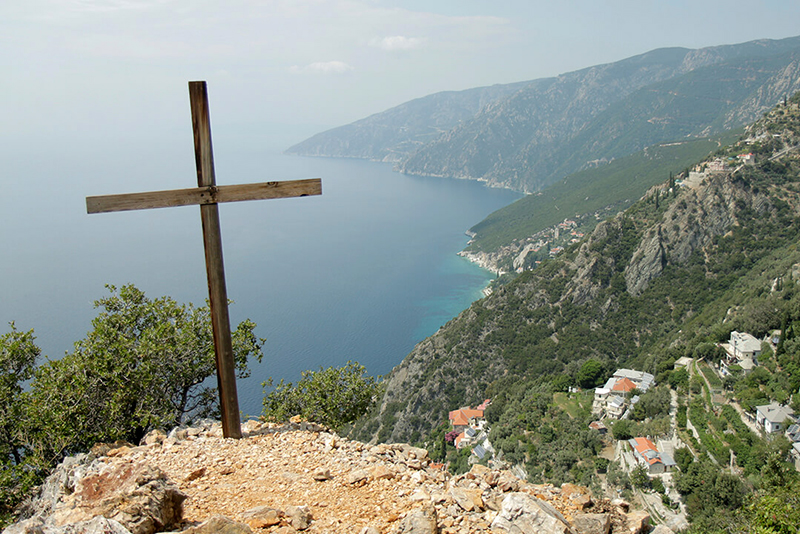
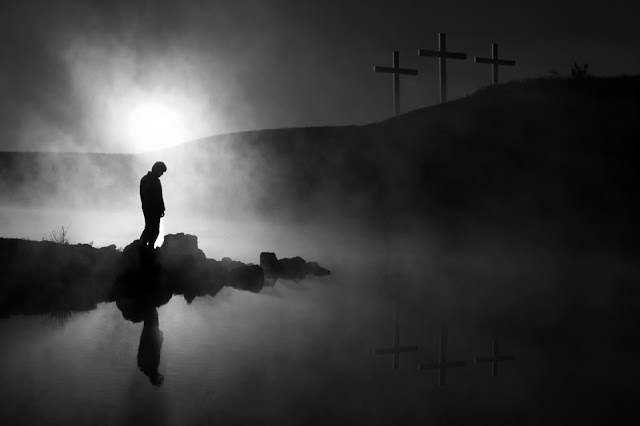
Thank you to dear Martin for his pilgrimage and his impressions.
I lived in the Far East for some yeara before receiving baptism in the Orthodox Church in 2000, and have always sensed a resonance between some aspects of traditional Chinese culture and the Orthodox way..
We all need each other’s gifts, and the Chinese have so many. May the Lord baptise each of these unto His Glory and His Light in the world.
Good Lent to all,
Anthony